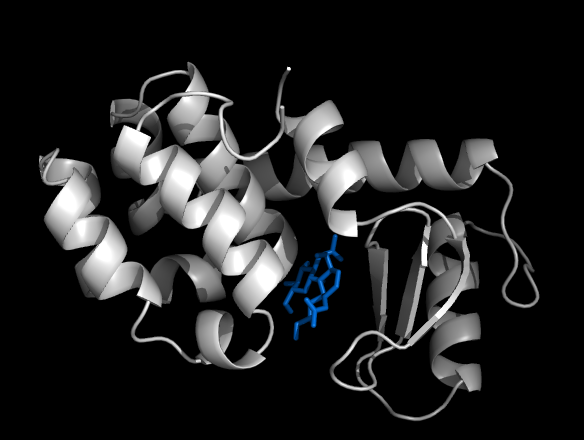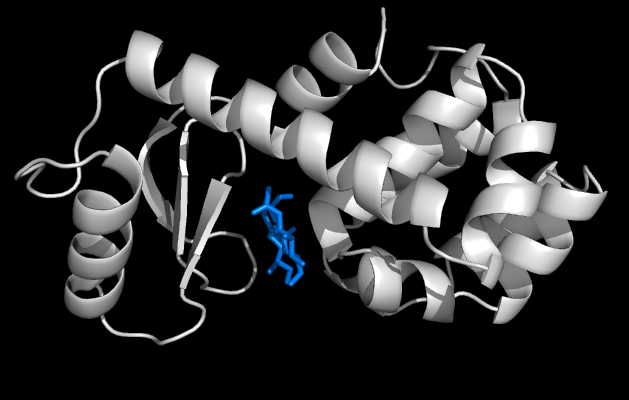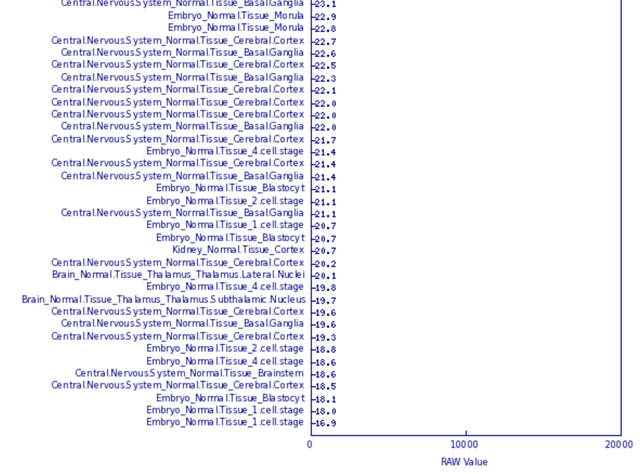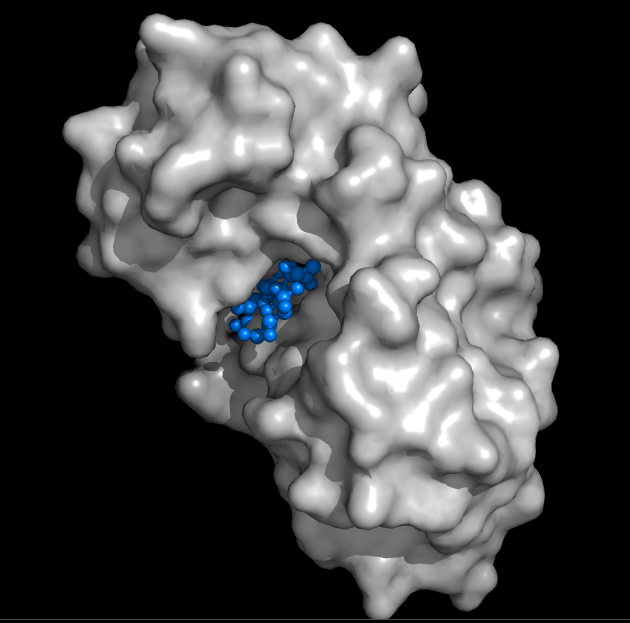This contest is an attempt to promote scientific knowledge among community in a fun and interesting way with the help of molecules.
Some people like to travel around the world and tell others stories about what happens outside of our organisms/cells in other countries.
And with “Identify the molecule” contest you can try to travel inside our own organism/cells and cells of the organisms around us.
For more information about this contest read "Identify the molecule contest. Introduction. Prize: 100 STEM" post.
The prize here is
1. knowledge
facts, information, and skills acquired through experience or education; the theoretical or practical understanding of a subject
[Oxford Dictionary of English, 3rd Edition, Oxford University Press, 2010]
That understanding of our own organism and organisms around us is the real prize in the case of this contest. No matter what happens (whether or not you get 100 STEM), you can win (can acquire the knowledge by investigating different sources of information, remembering and using it to your advantage in the future).
2. 100 STEM
STEMGeeks is a community focused on STEM topics rewarding engagement with STEM tokens. STEMGeeks is powered by the Steem blockchain with it's own distribution model for STEM tokens in addition to the potential STEEM tokens.
STEM stands for Science, Technology, Engineering, Math and includes a wide range of science and technology topics.
source
Consider these tokens as a bonus.
I’ll upvote all the comments (with the guesses).
Images and text are the clues for you to guess a riddle (the name of the molecule in this case).
Note that
a) even though this contest is called “Identify the molecule”,
-> molecule (singular)
sometimes it’s not just a molecule which is responsible for a specific function, but rather a complex of molecules.
Example:
cytochrome c oxidase (Complex IV)
is a large transmembrane protein complex… It is the last enzyme in the respiratory electron transport chain of cells located in the membrane.
source
b) some molecules/complexes have different names. For example, other names for cytochrome c oxidase (example above) are
Complex IV (mitochondrial electron transport).
Cytochrome a3.
Cytochrome aa3.
Cytochrome oxidase.
Warburg's respiratory enzyme.
source
Any of those names would be a valid entry.
c) Some almost identical molecules are grouped into classes / groups / families.
Example:
Helicases are divided into 6 groups. RecD and Dda molecules belong to helicases group (Superfamily 1 (SF1)). In this case you would need to guess only the name of the group –> Helicase/ Helicases.
d) Some proteins can have different forms – isoforms.
Example:
There’re trypsin 1 and trypsin 2. In this case you would need to guess only the general name – trypsin.
Riddle
This molecule was discovered accidentally near 100 years ago [1].
It’s an important player of our innate immune system with anti-bacterial/fungal/viral properties.
It’s found not only in animals, but also in plants, bacteria and bacteriophages (the latter use it to break into the host bacterial cell to inject their DNA) [2].

It’s a promising “tool” to increase our chances to fight malaria [2].
There’re medal/s and sculpture/s dedicated to this molecule [3, 4].

Here’s the data showing where (in what human normal tissues) the gene of this molecule is expressed the most:

(in other words, those are the places where the molecule is present in abundance) [5]
And here’s the data showing where (in what human normal tissues) the gene of this molecule is expressed the least:

(in other words, those are the places where the amount of this molecule is the lowest) [5]

Once this molecule was “The molecule of the month” on PDB (Protein Data Bank).
The RCSB PDB Molecule of the Month by David S. Goodsell (RCSB PDB-Rutgers and The Scripps Research Institute) presents short accounts on selected molecules from the Protein Data Bank...
This feature provides an easy introduction to the RCSB PDB for all types of users, but especially for teachers and students.
source
"Edited". Additional clues.
This molecule is one of the reasons why dogs’ saliva (and our own as well) sometimes (!!!) might help to heal their/our wounds. In other cases wound licking can lead to serious infections (for example, because of bacteria in our mouth cavity) [6].
This molecule is one of the reasons of bactericidal properties of the egg-white.
This enzyme belongs to the Hydrolases (the largest class of all known enzymes) [7].
"Edited" (09.04.2019). Final clues.
It is the first protein which was found to have all the 20 usual amino acids, and it is the first enzyme for which scientists suggested a detailed mechanism of action [1].
This molecule is the most common protein on PDB.
Rules
This contest lasts for 6 days.
Some of the clues have been already provided in this post.
Additional clues will be given in 2 days (on Monday, September 2, 2019, 20:00 ± 2 minutes UTC)(I’ll update this post).
And the rest of the clues will be provided in 2 more days (on Wednesday, September 4, 2019, 20:00 ± 2 minutes UTC)(I’ll update this post).
The reason is that some people might need less information to make conclusions that the others.
Additional clues will be added at the end of the "Riddle" section before the "Rules" section with "Edited" label.
Leave your guess (1 guess only) in the comments section of this post.
Don’t edit your comment (otherwise your entry will be invalid).
The first user with correct answer is the winner.
The winner will be announced on Friday, September 6, 2019, 20:00 ± 2 minutes UTC.
I’ll transfer 100 STEM to the winner on that day (September 6) and add the transaction ID/screenshot in this post (I’ll update it).
I’m planning to run this contest every week.
So, you should expect to see the 2nd task/riddle on Saturday, September 7, 2019, 20:00 ± 2 minutes UTC.
(UTC / Universal Time Coordinated / Coordinated Universal Time / Universal Time / Greenwich Mean Time)
Useful resources to participate in this contest
1/ National Center for Biotechnology Information
2/ PubMed
PubMed comprises more than 30 million citations for biomedical literature from MEDLINE, life science journals, and online books.
source
3/ Wikipedia
4/ PDB-101
PDB-101 is an online portal for teachers, students, and the general public to promote exploration in the world of proteins and nucleic acids.
source
5/ UniProt
UniProt (Universal Protein Resource) is one of the central places for us to get proteins sequences and information about them.
For more information go to https://www.uniprot.org/help/about
a global resource for the advancement of research and education in biology and medicine.
source
It's the central resource for 3-D structures of proteins/DNAs/RNAs and associated functional information.
I’ll discuss molecules/complexes proposed here in detail (with explanation of the riddle) in the ""Identify the molecule" contest #1 [Lysozyme]. Discussion. Winner announcement" post which I'll publish in 3-4 days.
References
I’ll add all the references for this post later, because most of them contain the name of the molecule.
That would be a spoiler.
I’ll add them in 6 days.
"Edited"
Lysozymes: model enzymes in biochemistry and biology. P. Jollès (Ed.). Birkhaüser Verlag, Basel. viii + 469 pages, SFr198 (1996).
Human and Mosquito Lysozymes: Old Molecules for New Approaches Against Malaria. Mauro Prato, 2015th Edition.
Lysozyme. ELLIOTT F. OSSERMAN, ROBERT E. CANFIELD and SHERMAN BEYCHOK, 1974.
Important
This contest is the work in progress.
This is just the beginning.
A lot can be changed in the future.
Any recommendations/suggestions are very welcome.
All images (without the license specified) are used under the doctrine known in USA as "Fair Use" (similar doctrines are used in other countries). For more information visit the US Gov website
Some kind of beef.
Downvoting a post can decrease pending rewards and make it less visible. Common reasons:
Submit
Let's see, it breaks two sugar residues on cell wall and is present in saliva! Hmm, is that lysozyme? I would guess Lysozyme.
Downvoting a post can decrease pending rewards and make it less visible. Common reasons:
Submit
congratulations
you're right.
I've just sent 100 STEM
https://stemgeeks.net/@alexbiojs/transfers
Hope you received it.
Btw, maybe you know,
we have steemd and steemworld to see translactions for Steem
but how to see transactions done with STEM token?
Lysozyme is the right answer.
I'll discuss molecule proposed in this contest in detail (with explanation of the riddle)
in the ""Identify the molecule" contest #1 [Lysozyme]. Discussion. Winner announcement" post
which I'll publish in 3-4 days.
thanks for participation.
From now on, there's 1 more rule.
If there's no correct answers provided by users,
then 100 STEM will be distributed equally among all participants with guesses.
Downvoting a post can decrease pending rewards and make it less visible. Common reasons:
Submit
It is Amylase, you just asked for the general answer I believe.
Posted using Partiko iOS
Downvoting a post can decrease pending rewards and make it less visible. Common reasons:
Submit
hi.
Lysozyme is the right answer.
I'll discuss molecule proposed in this contest in detail (with explanation of the riddle)
in the ""Identify the molecule" contest #1 [Lysozyme]. Discussion. Winner announcement" post
which I'll publish in 3-4 days.
This time we have the winner.
thanks for participation.
From now on, there's 1 more rule.
If there's no correct answers provided by users,
then 100 STEM will be distributed equally among all participants with guesses.
Downvoting a post can decrease pending rewards and make it less visible. Common reasons:
Submit
My guess – Histatin 1
Thanks again, have a great day.
Downvoting a post can decrease pending rewards and make it less visible. Common reasons:
Submit
hi.
Lysozyme is the right answer.
I'll discuss molecule proposed in this contest in detail (with explanation of the riddle)
in the ""Identify the molecule" contest #1 [Lysozyme]. Discussion. Winner announcement" post
which I'll publish in 3-4 days.
This time we have the winner.
thanks for participation.
From now on, there's 1 more rule.
If there's no correct answers provided by users,
then 100 STEM will be distributed equally among all participants with guesses.
Downvoting a post can decrease pending rewards and make it less visible. Common reasons:
Submit
Alpha-amylase
Downvoting a post can decrease pending rewards and make it less visible. Common reasons:
Submit
hi.
Lysozyme is the right answer.
I'll discuss molecule proposed in this contest in detail (with explanation of the riddle)
in the ""Identify the molecule" contest #1 [Lysozyme]. Discussion. Winner announcement" post
which I'll publish in 3-4 days.
This time we have the winner.
thanks for participation.
From now on, there's 1 more rule.
If there's no correct answers provided by users,
then 100 STEM will be distributed equally among all participants with guesses.
Downvoting a post can decrease pending rewards and make it less visible. Common reasons:
Submit
Dang, only just seen this and it's expired. Guess I'll have to follow so as not to miss next one.
Posted using Partiko Android
Downvoting a post can decrease pending rewards and make it less visible. Common reasons:
Submit
hi
thanks for the interest for this contest )
Downvoting a post can decrease pending rewards and make it less visible. Common reasons:
Submit